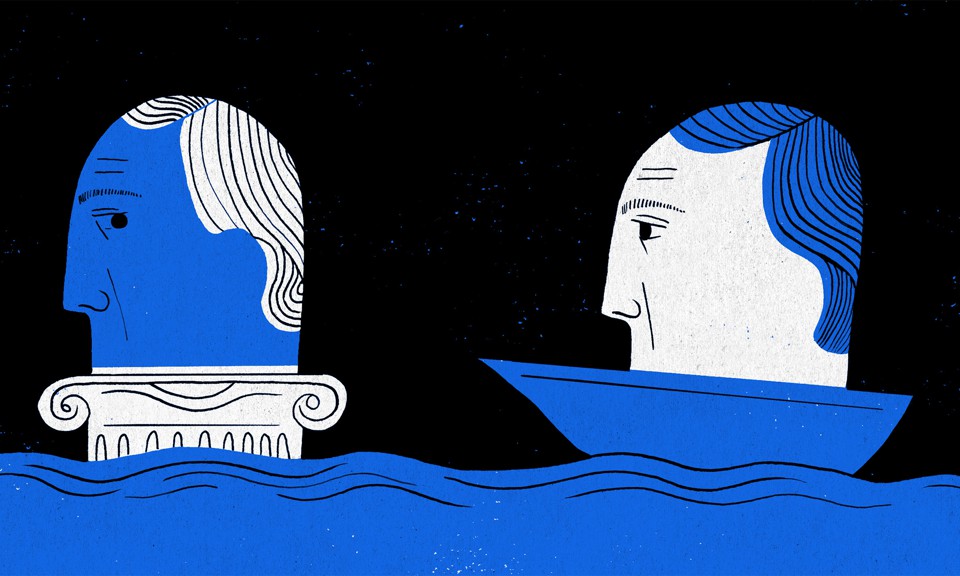by REBECCA NEWBERGER GOLDSTEIN

What the epic can teach about encounters with strangers abroad and at home
Who could have guessed that the time would be so ripe for an Odyssey that shrinks the vast distance between the ancient text and contemporary sensibilities? During the age when The Odyssey took form, near the end of the eighth century b.c., the Greeks were voyaging into the world once again after a period of dark decline. They were setting up colonies and resuming the trade that had been interrupted by whatever cataclysmic forces—invasions, rebellions, pestilence, natural disasters—brought down the Bronze Age civilizations of Minoa and Mycenae. Yet the spirit of the second Homeric epic is wary. Unlike The Iliad, which sings of the glorious feats of godlike warriors in a legendary heroic age, The Odyssey tells of a weary man’s fight for survival in the face of threatening Others who can never share his view of the world or take his interests to heart. This besieged sense of a realm seething with social hostilities and deep divisions, in which the very possibility of dialogue seems out of reach, may well strike a chord.
In her powerful new translation, Emily Wilson, a classicist at the University of Pennsylvania, has chosen immediacy and naturalism over majestic formality. She preserves the musicality of Homer’s poetry, opting for an iambic pentameter whose approachable storytelling tone invites us in, only to startle us with eruptions of beauty. “Then felt I like some watcher of the skies / When a new planet swims into his ken,” John Keats wrote upon reading George Chapman’s “rhyming fourteeners” (his solution to the challenge of rendering The Odyssey’s archaic Greek meter of dactylic hexameter). Wilson’s transformation of such a familiar and foundational work is similarly astonishing. I was struck with wonder at how eerily of our time it is, this tale that emerged nearly 3,000 years ago.
Andra—“man”—is The Odyssey’s first word. Instead of referring to the epic’s hero by name, it evokes a stark nakedness, the state to which he will so often be reduced in the tale that unfolds. Odysseus’s legendary craftiness—he devised the Trojan horse, delivering victory to the invading Greeks—is now devoted to the effort of fathoming what lurks within all those he meets: men and women, gods and goddesses, sorcerers and monsters. Is there a core of shared humanity he might arouse if he says exactly the right words—as he manages to do with the xenophobic Phaeacians, quelling their suspicions so that they invite him to tell his story and then offer him aid? Or are there Others with whom stories cannot be shared—whose sympathies cannot be engaged, whose very being poses an existential threat?
The sea itself, on which Odysseus and his men are forced to travel, is a treacherously alien element, even under the best of circumstances. And Odysseus is faced with the worst of circumstances: He has made an implacable enemy of Poseidon, because of yet another inimical Other, Polyphemus, the cyclops who happens to be Poseidon’s son. At first Polyphemus seems, in his pastoral way of life, sufficiently human—unlike, say, the ravenous six-headed monster Scylla or her man-slurping next-door neighbor, Charybdis—that Odysseus dares to approach the one-eyed giant as a fellow being.
The Atlantic for more